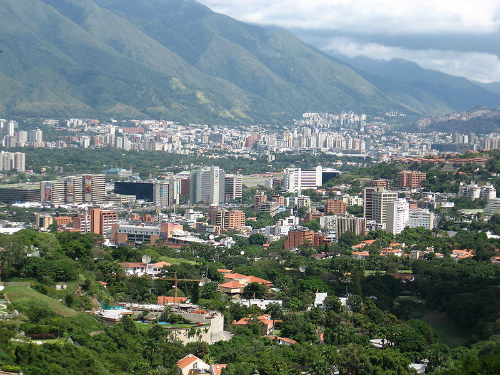Venezuela is an attractive country to move to, with its wonderful tropical climate and diverse, gorgeous geography – you will find both warm beaches and cold mountains here. It is also a largely urbanised country with most of the populace living in the urban centres. The main industry in Venezuela is oil, and this too has attracted a thriving expat population to the country.Like most other countries, Venezuela has both private and public healthcare, and medical treatment tends to be on the expensive side in the private sector. While the facilities may not always be world-class, they are usually of a reasonably good standard. You should have comprehensive medical insurance sorted out before you move there.
Being a tropical country, the major health risks in Venezuela come from waterborne and mosquito-related diseases. General precautions include drinking bottled water and not consuming ice made outside your own home and other homes that you trust. You must also guard against mosquito bites, because mosquitoes are the carriers of some of Venezuela’s most dangerous diseases.
Major waterborne diseases in Venezuela
Hepatitis A: This is a liver disease that is highly contagious and is spread by eating contaminated water or food. You could contract the virus no matter where you are living or at whose home you dine. The best way to safeguard against this disease is through vaccinations, and you should plan these well in advance of moving there.
Hepatitis B: This disease also affects the liver, and is usually spread by sexual contact or by using infected needles and syringes (which is a possibility if you get a tattoo in Venezuela). You are also at risk if you work in the healthcare sector itself. Some people contract Hepatitis B for a short period and recover, while for others it can manifest as a long-term, chronic illness. It frequently leads to much more serious conditions such as cirrhosis or liver failure, and like Hepatitis A, can be prevented by being vaccinated well in advance of moving to Venezuela.
Typhoid: This is a gastro-intestinal infection that is caused by a strain of the salmonella bacteria. It is highly contagious and can be transmitted even while you are handling food or water with an infected person. Some of the general precautions you can take include washing your hands very frequently and ensuring that you maintain impeccable personal hygiene. You should only consume purified water and ensure that all the food you eat is cooked. Additionally, you should also get yourself vaccinated before you move.
Major mosquito-borne diseases in Venezuela
Malaria: Venezuela declared itself malaria-free way back in the 1960s, but it is possible to contract the disease in the country even now. It is therefore essential that you take precautions against malaria, because the disease can be quite severe, and can sometimes even be fatal. Wear long sleeves and trousers, especially once the sun has set, and try to sleep under a mosquito net at night. You must use insect repellent when you are out in the evenings as well. You should speak to your health service provider in advance and find out about the right antimalarial drug for you to use.
Dengue: Dengue is very common in urban centres in Venezuela where the living conditions aren’t very sanitary and an abundance of still water provides a number of convenient breeding grounds for mosquitoes, the primary carriers of the fever. The symptoms include very high fever and body aches.
Yellow fever: This is also a viral infection transmitted by mosquitoes, and it is probably the most dangerous one. Yellow fever affects the liver and the kidneys, and is very often fatal. There is a vaccine available for this disease, which you should take at least four weeks before you go to Venezuela. The precautions for this disease are very much the same as the ones for malaria.
Healthcare in Venezuela in 2015
In recent times, because of the struggling economy, the standard of healthcare in Venezuela has become a cause for concern. Obtaining access to good quality healthcare has itself become one of the biggest health risks of living in Venezuela. This affects every part of society from the rich to the poor. As has been widely reported in the global media, the issues range from an unavailability of doctors to an unavailability of medical supplies and medicines.
Can we improve this article? Something wrong? Let us know in the comments.

